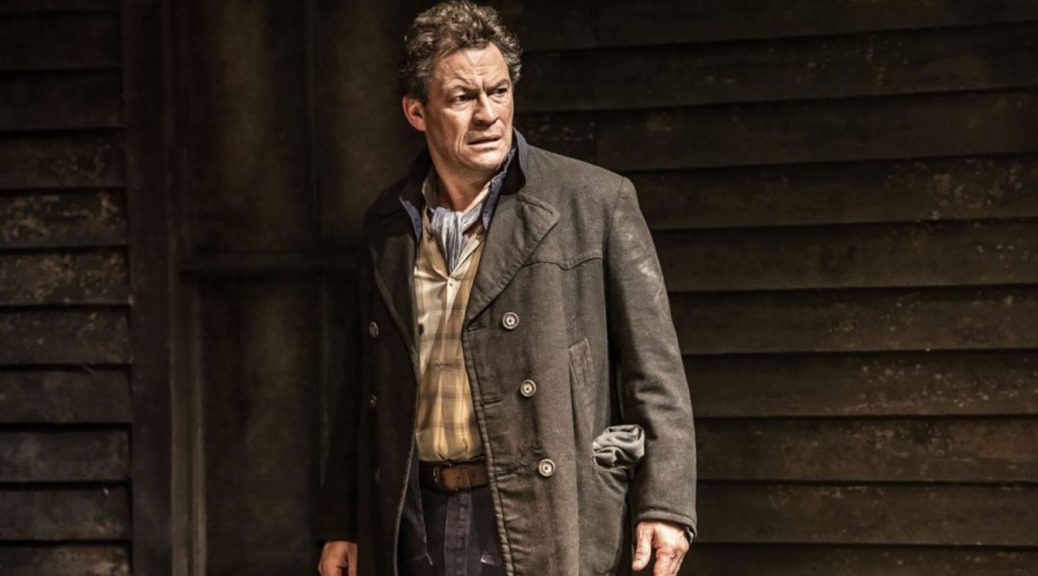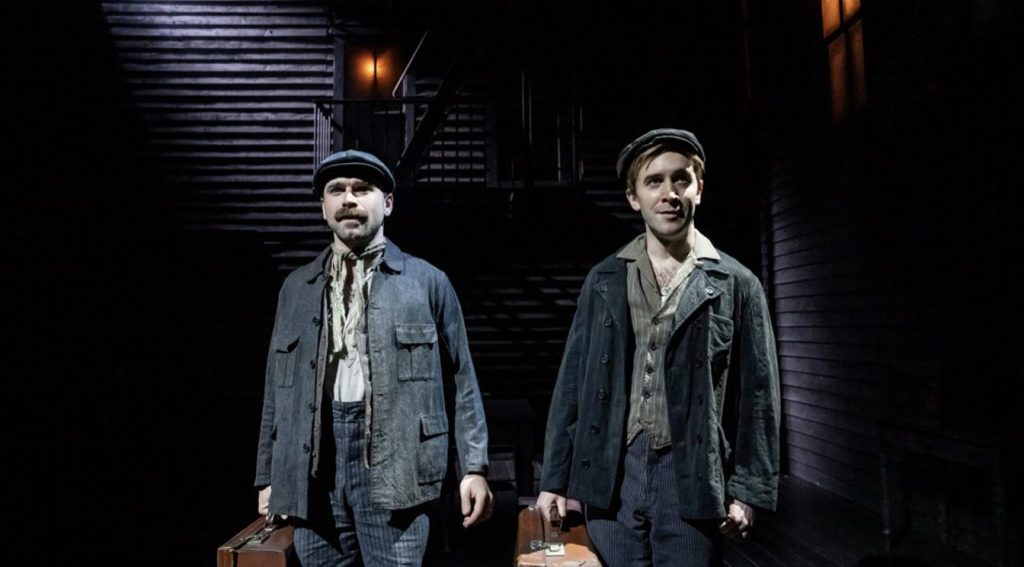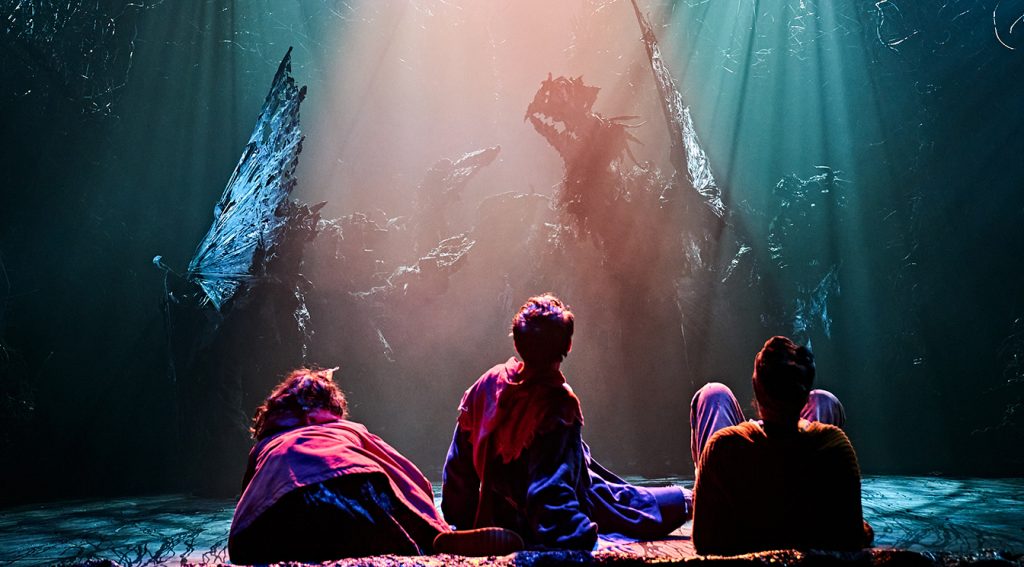As the most Tony Award-nominated play ever, and the biggest winner in 2024, David Adjmi’s smash hit is compulsory viewing. Set in music recording studios in the late 1970s as a band work on an album, there are vivid characters, rigorously directed by Daniel Aukin, to enjoy. As the highs and lows of making music are recounted in depth, ‘detailed’ is a generous description. It turns out there’s a lot of repetition to making an album… and a surprisingly amount of silence. So, while Adjmi’s script is carefully crafted, it might try your patience.
The pressures and problems of artists aren’t my favourite genre. No matter how troubled, the characters here are talented and successful, so sympathy is a bigger ask than it might be. And I’ll admit the period and type of rock group the show is about (roughly, Fleetwood Mac) has little appeal. Nonetheless, the focus brought to the project is admirable. The claustrophobia recounted is compelling and, considering how little action there is, this long show has tension that Aukin sculpts with skill.

Does Adjmi open up his play so that mere mortals who aren’t ‘artistes’ have something to relate to? Yes. But not successfully. The band’s two engineers, Grover and Charlie, are a device here. Eli Gelb and Andrew R. Butler are strong in the roles, but the characters are still stuck in their milieu. They become lackeys to Peter, the band’s self-appointed creative lead, whose tortured performance from Jack Riddiford makes his deep insecurities clear. There’s plenty to observe about the (male) ego – a bigger topic than the music business – although not much of it is new.

There is an admirable restraint when it comes to the machinations of showbusiness. Simon, who both the band’s manager and its drummer, could be a more sinister figure, but Chris Stack’s careful portrayal makes us warm to the man. Addiction is a big subject, too. But the band’s bag of cocaine is, literally, too large – it causes more laughs than it should. Bass player Reg, played by Zachary Hart, is a role that suffers, as his drunken and drugged stumbling just gets giggles. Even when he gets clean, Reg is just ridiculous.

It’s with romantic relations that the play excels. With two married couples in the band, the sexual dynamics are interesting, and the balance Diana and Holly must strike between being wives and artists means that Lucy Karczewski and Nia Towle have meaty roles. Both are fantastic, their characters complex, quick to connect with and easy to become invested in. As Diana fights not to cut verses of her song, it is the only instance when Adjmi’s interests are a hit emotionally.
The songs written for the play, by Will Butler, will be a further attraction for many audience members. But because the show is consciously not a musical, they come close to being a distraction. It’s nice to hear what the band are working on, and it all sounds great, but it also makes the whole show too long. As with everything here, the music and its performance are of a high standard. But, while you can see why Stereophonic got so many awards, it is hard to be inspired by it.
Until 11 October 2025
Photos by Marc Brenner





